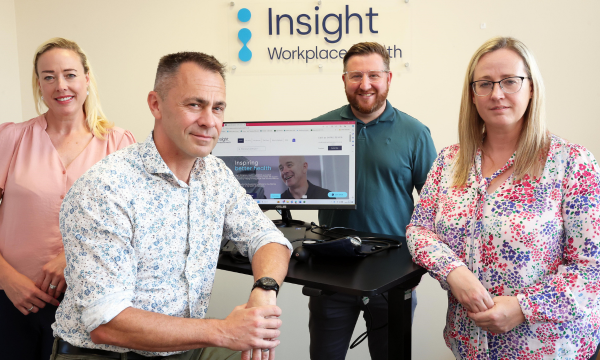
GUEST COLUMN:
Jackie Gill
Product Manager
IEG4
The NHS in Wales is currently facing unprecedented challenges, with a surge in red (immediately life-threatening) calls to 999, a significant number of patients who are medically fit for discharge but still in hospitals across Wales, and a rise in viruses affecting both patients and staff.
On top of all that, recent industrial action of health boards including the Welsh Ambulance Services NHS Trust has only added to the pressure on an already stretched service.
The current urgent challenges are hindering the health and care service's ability to plan for the future. This means a focused approach is needed, supported by a visionary long-term plan for the system and its workforce. An enduring investment is also required to drive the transformation of health and social care.
One main obstacle in the Welsh healthcare system is the limitations to its budgets. The task of allocating ample funding to deliver exceptional Continuing Healthcare (CHC) services is a formidable challenge, particularly in light of the rising costs of healthcare. Like many other regions, Wales is experiencing demographic changes, with an aging population that places additional demand and required resource on healthcare services. The demand for CHC services, including long-term care and support for older adults with complex health needs, is expected to increase.
But there are deeply engrained administration issues within the NHS and local authority care services due to outdated systems, particularly around data and the quality of data entry on application forms.
The challenge for CHC in Wales
A key priority for the Welsh Healthcare Services is to integrate health and social care services to achieve seamless coordination between the different care providers – including hospitals, community care and social services. It has been a huge challenge to date but if healthcare services are to meet their required timescales and targets, it’s an essential process that needs to be prioritised and delivered by the Integrated Care Fund (ICF).
When looking at streamlining CHC processes in Wales by integrating health and social care, one prominent issue that consistently arises is the disparity in the provision of CHC services across various regions of Wales. This discrepancy in service accessibility and available resources has resulted in significant inequalities in the level of care provided to patients.
While some regions boast better access to services and resources, others are left struggling to meet the demands of their population or don’t have facilities within their region to deliver the required care for complex cases. These inequalities in care not only hinder the overall effectiveness of the healthcare system but also sustains a sense of injustice among patients and healthcare professionals alike.
The accessibility of Mental Health services is severely affected by the limited availability of services. Mental Health Services play a vital role in the delivery of CHC but it has been greatly affected by a lack of resources, which means there have been ongoing challenges in providing timely and accessible mental health support.
Modernising Continuing Healthcare
A digital end-to-end CHC solution, such as IEG4’s Continuing Healthcare Platform, provides optimal patient outcomes and user experience by driving increased productivity via workflow processes which speed up the decision- making process. Information flows seamlessly between processes, reducing duplication and errors. The self-service portals give both patients and providers the opportunity to digitally interact in real-time with the NHS regarding the CHC process.
There are many benefits to digitising CHC that will provide efficiencies and improve the interoperability of different systems across different areas of health and social care, something critical to the success of an ICS.
In doing so CHC teams across Wales will see improved workflow efficiencies as digital referrals cut down on paperwork, reduce errors and lost information. It also creates transparency where digital models can speed up the decision-making process and allow patients to see up to date progress of their applications.
Addressing these disparities and promoting equal access to high-quality healthcare services through digital is of utmost importance. By implementing strategic initiatives that focus on redistributing resources and improving infrastructure in underserved regions, the gaps can be closed and ensure that every individual across Wales receives the same level of care.
Furthermore, it is vital to foster collaboration and knowledge sharing among healthcare providers in different regions, as well as taking learnings from the All-Age Continuing Care teams within the England ICBs. By facilitating the exchange of best practices and innovative approaches to care delivery, a more uniformed healthcare system that provides equitable care to all patients, regardless of their geographical location can be delivered.
In order to achieve these goals, it is crucial that professionals advocate for increased funding and support from both the government and private sector. By investing in the development of healthcare infrastructure and workforce, they can not only address the existing disparities but also lay the foundation for a sustainable and resilient healthcare system that can adapt to future challenges.




















